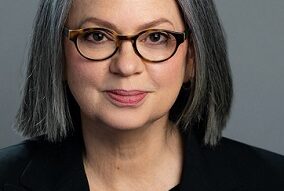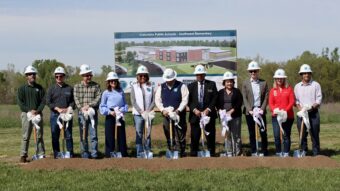Commercial real estate can be a risky business. Suzanne Hamilton, the new vice president of finance with Cleveland’s NAI Daus, hopes to eliminate some of that risk, at least with the company that recently hired her.
Hamilton, who brings more than two decades of experience to her new position, plays an important role for NAI Daus: She evaluates prospective and existing opportunities for both investors and clients. Her job is to predict, as accurately as possible, a property’s potential financial performance and long-term value.
Midwest Real Estate News recently spoke with Hamilton about the tricky business of analyzing commercial real estate and the many rewards of her new position.
Midwest Real Estate News: How did this hire come about? It’s a new position for NAI Daus, as I understand. Suzanne Hamilton: I had been serving as an outside consultant to NAI Daus on the development and investment side. If there were investment opportunities or development opportunities I’d analyze them for the company to give them the information they’d need to make an informed business decision. I’m not a real estate appraiser, but the work I do is similar to how an appraiser would analyze a property or investment opportunity. I take a look at the wider market, the specific opportunity and the overall economy. I do my number-crunching and my market research and come up with a value for the project. I help determine whether it is viable as a new investment.
I also was looking at current investments or ones that had recently happened to monitor their performance. I was making sure that they were living up to their projected expectations. I’d identify red flags. I was doing this kind of work frequently enough that the principals and partners of NAI Daus decided that it made more sense for me to come aboard on a full-time basis.
MWREN: This kind of analysis that you perform has always been important in the commercial real estate business. But with the still-struggling economy, is it even more important today? Hamilton: I think that brokers have always needed this kind of function to help them make the right decisions. I think that what many companies do is use other outside to do the consulting on a fee basis. Companies can end up spending a lot of money approaching their research this way before they even get to a financial institution to see if the institution will even accept their loan requests. They’ve spend a lot of money before getting to the loan phase on their due diligence, analyzing potential investments. If these companies had an in-house ability to do the analysis themselves, they could have saved a lot of that money.
MWREN: Can you provide a hypothetical example of how your presence on then permanent payroll can result in savings for NAI Daus and its clients? Hamilton: Let’s say the company is interested in a property. NAI Daus could spend $20,000 to $30,000 for an outside consultant to look at market conditions and the past performance of the property. Or they can have someone like me in-house to do the same research. I can spend a day analyzing the property. The company has then saved the money they would have spent on an outside consultant. Now, I am on NAI Daus’ payroll, so they are paying me for the research. But the savings companies get for having an in-house financial analyst are exponential.
MWREN: How did you get involved in analyzing commercial properties and investment opportunities? Hamilton: I had been in the banking industry for 20 years on the commercial real estate lending side before making this move. I was doing all the things that I’m now doing for NAI Daus and its clients from the banking side. I had a female mentor who was working with me. She offered me the opportunity to go into the commercial real estate side. I found out that I enjoy working with real estate. I like being a solutions provider. I like being involved in the development and redevelopment of where I live. I like being able to help improve a community. There is a lot of pride associated with this career. And it’s a lot of fun being able to provide my research skills and services to people whom I want to see succeed. I also want to be able to say, “Stop. I don’t see that as a good investment for you.” A quick “no” is often a smart decision. You should never try to force something to work.
MWREN: When analyzing commercial properties, what factors do you consider? Hamilton: I look at the vacancy rate sin properties and the type of tenants that might be available in a neighborhood. Is the building itself a desirable property? And, of course, location is key. What might seem like a very appealing opportunity in one market might bring the same value in another. At the same time, it’s critical to factor everything through the type of market we are in now.
MWREN: How excited are you by this opportunity? Hamilton: I feel honored to have been asked to come aboard. I have been lending to NAI Daus for many years. The company was one of my customers when I was working in the banking industry. That was one of the attractive things about coming here. There were no surprise to either one of us. Everyone knew what they were getting. I guess you could say that there is no honeymoon period when you have already been married for such a long time. I’m enjoying my work here, and I’m looking forward to working here for a long time.



